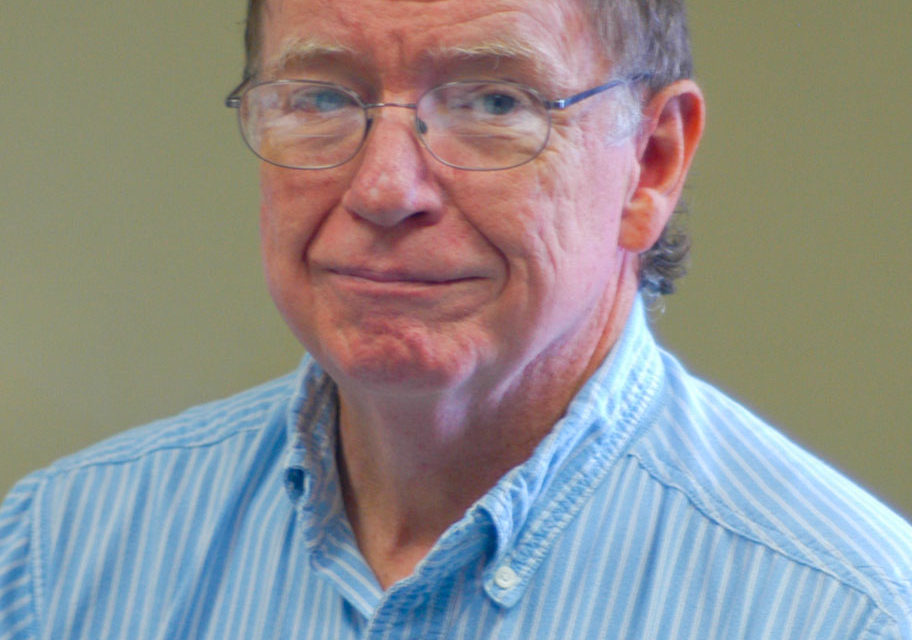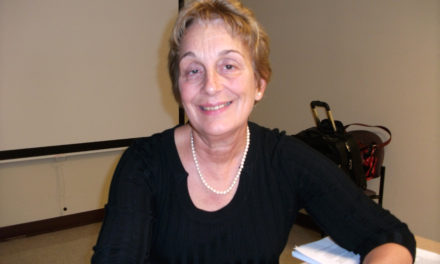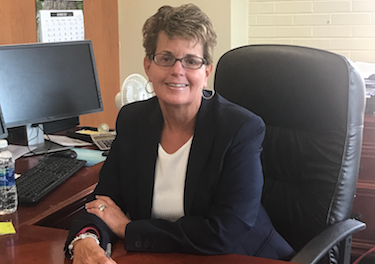By Anna Ornelas (Staff Writer)

Dr. Michael Nielsen, Professor of Media Arts
Spare electronic equipment, computer monitors and wires adorn Dr. Michael Nielsen’s bookshelves, making his office on the fourth floor of the College Center look like a jungle of technology.
Even among the piles of paper and tripods, the 59-year-old man behind the desk seems at peace.
“I love teaching, [but] if you would have told me when I was an undergrad that I’d end up being in school the rest of my life, I would have probably slit my wrists,†Nielsen said.
Nielsen, a professor of Media Arts, has been teaching at Wesley since 1989.
Raised in Chicago, Nielsen attended the University of Illinois, where he received a PhD in Communication.
“It was a huge university,†he said. “It wasn’t unusual to go into a class where there were television sets instead of professors, and you watched lectures that had been taped. It was during that time period when they thought that would be the way of the future.â€
Nielsen taught at Florida Atlantic University before coming to Delaware with his wife to teach at Wesley.
As long as his students are willing to work, he says that his tolerance for their quirks remains high.
“I think [Media Arts students] are just about the craziest students,†Nielsen said. “They tend to have a slightly skewed vision of the world. I’m always amazed when I get a student who is very straight-arrow. Most of our students are open books.â€
Erick Huber, a junior Media Arts student has taken several classes with Nielsen.
“He really showed me a new light into how the media works,” Huber said. “What they do can control and affect society.”
Nielsen believes that his ability to relate to his students comes from how young he feels inside.
“Instead of becoming a crotchety old man who’s kind of stuck in his ways, I have to constantly deal with new ideas, new ways of looking at things, and find a way to adjust,†he said. “Sometimes I do a good job, and sometimes I’m a bit of a fuddy-duddy and an old man.â€
Nielsen’s favorite class to teach is Media Aesthetics.
“It’s fun to watch students who have grown up watching television and browsing the web suddenly realize, ‘Oh! Somebody did this and they did it in a really specific kind of way’,†he said. “It’s kind of like giving people the code to how the media are put together.â€
Nielsen says that he often notices a big change in students from when they come to Wesley as freshman to when they graduate.
“Students come in sometimes not having a realistic perspective on what the media involves,†he said. “They tend to notice only the media they consume, which is often television, music and movies. What I notice is that by the time they’re seniors, if they’ve survived and they’re still here, they’re actually getting a much broader idea of what it is to be a media worker.â€
Nielsen also is involved in the community around the college.
One of the first videos in Delaware Nielsen made was a video for Kent County’s Habitat for Humanity. The group still uses the video to recruit volunteers to help build houses.
Nielsen’s favorite aspect of media is video production.
“Video is a way to emotionally move people,†he said. “It’s hard to argue against images. It’s a lot more powerful than if I write a news article and just write down those words. And video production is a bit nerdy now because it involves computers. And I definitely have a nerd side.â€
Nielsen says that in a best-case scenario, his students reach out to help their communities with media.
His students have learned more than simply producing media. They also have created projects that have helped change their communities.
Michael Short, one of Nielsen’s former students, made a video about pollution in the Delaware Bay behind Rehoboth Beach.
After being shown at Midway Theater in Rehoboth, a citizens’ group was organized to clean up the bay.
April Abel, a Media Arts senior, said that the most unique thing about Nielsen is how open he is to new things.
“The most striking thing about Nielsen is his love of learning,†she said. “He is constantly embracing new technologies and ideas, and weaving the old into the new.â€
“I think I’ve changed the way people look at the world,” Nielsen said.
Interested in the complete interview? View it in its entirety here:





